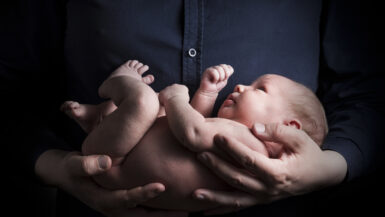Pregnancy is an incredibly exciting and special time for a woman. It is a time to celebrate the miracle of new life and savor the anticipation of bringing a new baby into the world. However, pregnancy is also a time of extreme physical and emotional changes that can be both challenging and difficult to navigate. It is important for women to be aware of these changes in order to better prepare themselves mentally and physically. This article explores the various physical and emotional changes a woman can expect to experience during pregnancy.
Trimesters of Pregnancy
The first trimester of pregnancy is often the most challenging, both emotionally and physically, for women. During this period, women will experience rapid changes in their bodies, heightened emotions, and plenty of anxiety and excitement about their new baby. During the first trimester, the baby’s organs are forming, and the mother may have nausea and vomiting, fatigue, breast tenderness, and other common pregnancy symptoms.
Second Trimester of Pregnancy
The second trimester of pregnancy is often thought of as being the most enjoyable for women. During this period, the baby’s growth and development continues, and the mother may start to feel a sense of connection as her baby’s movements become more pronounced. During the second trimester, women may experience an increase in energy, and find that their pregnancy symptoms may lessen or even disappear altogether.
Third Trimester of Pregnancy
The third trimester of pregnancy is often the most difficult and challenging, as the baby’s growth and development come to a close. During this period, women may experience symptoms such as lower back pain, constipation, Braxton Hicks contractions, as well as an increased risk of preterm labor. Women may also struggle with anxiety and fatigue as they prepare for their new baby’s arrival.
Physical Changes During Pregnancy
During a woman’s pregnancy, her body undergoes a number of physical changes. Women may experience an increase in weight, changes to the shape of their body, and changes to their breast size and shape. As the baby grows and develops, the mother may experience an increase in abdominal size as well as uterine expansion. Women may also experience Braxton Hicks contractions and other physical issues related to the growing baby.
Emotional Changes During Pregnancy
In addition to the physical changes that occur during pregnancy, women may also experience emotional changes. Women may feel overwhelmed by emotions such as joy, excitement, anxiety, and fear. As the baby develops and the due date approaches, many women may experience a roller coaster of emotions, often feeling a mix of both joy and anxiety. It is important for women to find ways to manage their emotions during pregnancy, such as talking to friends and family, seeking support, and practicing relaxation techniques.
Potential Changes to the Body
Throughout the course of pregnancy, a woman’s body undergoes an array of physical and emotional changes. Those changes can range from the expected, like weight gain, to the unexpected, such as dizziness or cravings. It is important to become aware of the potential changes one may go through while pregnant in order to best prepare for any potential complications.
Weight Gain
It is normal to gain weight throughout the course of a pregnancy. The amount of weight gain can vary woman to woman and depend on the woman’s pre-pregnancy weight, how many babies are being carried, and if any underlying conditions exist. On average, a woman should gain between 25-35 pounds over the course of a pregnancy.
Hormonal Imbalance
During pregnancy, a woman’s body undergoes an array of shifts in hormones. In particular, estrogen and progesterone increase significantly during the first trimester, peaking around the third month and then slowly decreasing as the pregnancy continues. This hormonal imbalance can cause a wide range of physical and emotional side effects, such as fatigue, nausea, changes in appetite, mood swings, and more.
Muscle Aches and Joint Pains
As the pregnancy progresses and the baby grows, the pressure on the woman’s body can lead to aches and pains in the muscles and joints. This discomfort is most common in the lower back, hips, and pelvic area. It is important to practice proper posture and body mechanics when engaging in daily activities in order to reduce the discomfort associated with the extra pressure.
Decreased Lung Capacity
The hormones released during pregnancy can cause the rib cage to expand and the diaphragm to move up and down, which can lead to decreased lung capacity. This decrease in lung capacity can make it more difficult to perform activities that require long periods of physical exertion. Additionally, some women may find they are out of breath more easily and need to take breaks more frequently.
Changes in Skin Texture and Appearance
During pregnancy, a woman’s skin may go through a variety of changes. Some of the most common changes include dryness, itchiness, darkening of certain areas, and the appearance of stretch marks. It is important to speak with a doctor about proper skin care techniques to minimize these effects.
Pregnancy can be an incredibly exciting and rewarding experience. It is important to become aware of the physical and emotional changes that may occur throughout the course of the pregnancy in order to best prepare for any potential complications. While the changes can be uncomfortable, they are a natural part of pregnancy and should be embraced.
Emotional Changes
Pregnancy can bring a mix of emotions, from joy and anticipation to fear and anxiety. For many women, the emotional changes that accompany pregnancy can be difficult to adjust to. Feeling anxious and overwhelmed is normal, and many women experience these feelings during pregnancy. It is important to take time to relax and take care of yourself during this time.
Mood Swings
It is common for pregnant women to experience mood swings. Rapid fluctuations in emotions and irritability can be caused by hormonal changes that occur during pregnancy. Trying to manage stress in healthy ways and speaking to a doctor can help control your moods.
Depression During Pregnancy
Pregnancy can also trigger depression in some women. Symptoms such as feelings of despair, sadness, and apathy can be an indication of depression during pregnancy. It is important to speak with your doctor if you are experiencing any of these symptoms. Depression is a serious condition and it needs to be treated.
Coping with Emotional Changes During Pregnancy
There are ways to manage the emotional changes that accompany pregnancy. Taking time for yourself, speaking to a doctor about your symptoms, and engaging in stress-relieving activities can help. Exercise, yoga, and meditation are all beneficial for managing stress. Additionally, talking to other pregnant women can provide support and help you feel connected.
Pregnancy can be an exciting and overwhelming experience. It is important to recognize and pay attention to the emotions you are feeling and take steps to manage them. Understanding the emotional changes that accompany pregnancy can help you to be prepared and make the experience a positive one.
Tips to Cope with the Changes
Pregnancy inevitably brings about physical and emotional changes in a woman, which may be overwhelming at times. The best way to face these changes is by acknowledging and giving yourself the space to express them. Pregnancy is a beautiful milestone in a woman’s life and the changes should be welcomed instead of avoided. Knowing that these changes are natural and expected can also make them easier to cope with.
Seek Support
Going through pregnancy is a unique experience, and it is important that women do not feel alone in this journey. Reach out to loved ones, your doctor, or even online forums for advice and support. This can help you to feel more secure and confident in the knowledge that you have a support system of people who understand what you’re going through.
Understand Your Emotions
During pregnancy, a woman’s hormones are constantly changing, which can lead to strong emotions. It is important to take care of yourself during this time and give yourself permission to feel any emotions that come up. Try to identify the root of the emotion, be kind to yourself and take time to practice self-care.
Prioritize Your Health
One of the best ways to cope with the physical and emotional changes of pregnancy is to prioritize your health. This includes getting enough rest, eating a balanced diet and exercising regularly. Make sure to always consult with your doctor before starting any new physical activity in order to reduce any risk of harm to you or your baby.
Establish a Self-Care Routine
Taking care of your physical and mental health will be key to coping with the changes of pregnancy. Create a self-care routine that is tailored to your needs, such as doing yoga, meditating, reading or going for a walk. This can help to reduce anxiety and help you to focus on the present moment.
Find Joy in the Moment
During pregnancy, despite all of the changes that are happening, it is important to find joy in the moment. Take time to appreciate all of the small moments that come with pregnancy and the unique experience that it brings.
Commemorating the Miracle of Motherhood
The miracle of pregnancy brings with it not only a physical transformation, but also an emotional one. The nine months of gestation are a time to celebrate the growth of a new life, but also to accept the adjustments that come with it. A woman’s body and her emotions go through a variety of changes as her body changes to accommodate the new life within her. Physically, her body builds and adjusts to the needs of the baby, resulting in aching and a variety of other experiences. Emotionally, she may feel joy, anticipation, worry, or a mix of different feelings and hormones. This can result in her struggling to adjust to the new changes her body is going through. Pregnancy is an incredible transformation, and as a result, women should be celebrated and supported. Commemorating the miracle of motherhood is an acknowledgement of the hard work and changes it takes to bring a new life into the world.





Leave a reply